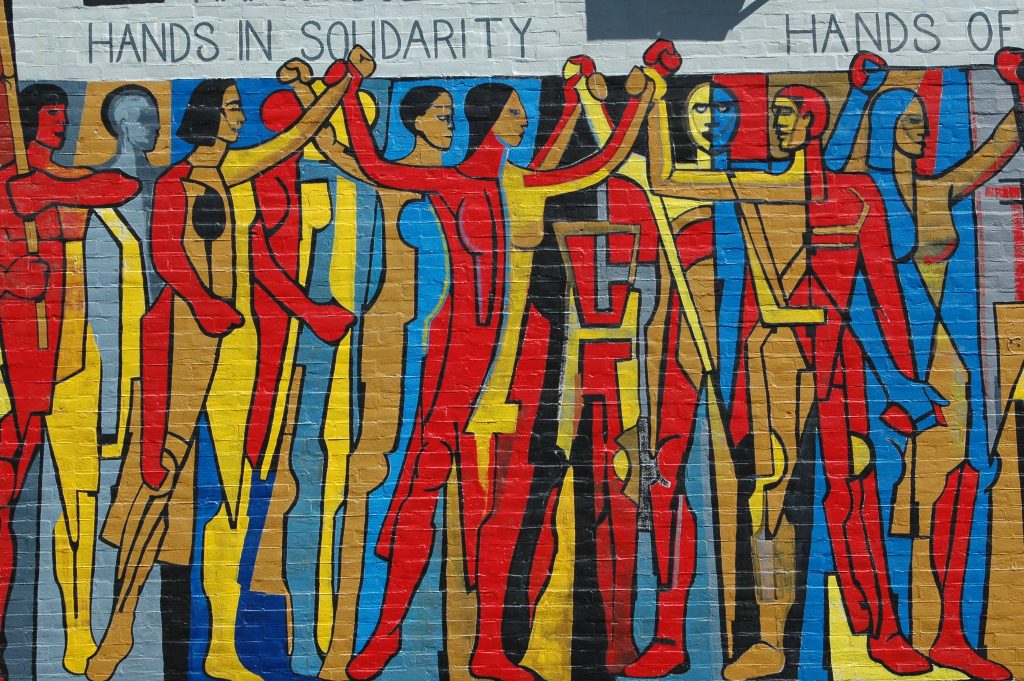Editor’s Note: Shareable has a general rule of not publishing press releases, but we have decided to make an exception in honor of the dedication to this important cause by RIPESS over the past decade and the potential of what may result from it.
Last week’s adoption by the UN General Assembly of the resolution A/77/L.60 is a historic achievement for the Social and Solidarity Economy (SSE) movement, which encompasses millions of people around the world, involved in all kinds of economic activities, both formal and informal.
Ripess supports and promotes this global movement to practice, build and develop a true alternative to capitalism, a transformative paradigm shift that humanity needs now more than ever, if we are to move towards truly sustainable development. SSE is characterized by cooperation, solidarity, mutual aid, democratic and participatory governance, autonomy, empowerment, and decent work. Working in all economic sectors, SSE entities underline the primacy of care for people and planet over capital in the distribution and use of profit and wealth. SSE includes many different legal structures, including cooperatives, associations, mutual societies, foundations, and self-help and voluntary groups.
RIPESS has been promoting the inclusion of SSE in sustainable development since the RIO+20 World Summit in June 2012. At that time, concrete proposals for the inclusion of SSE in the future SDGs 2015-2030 were already being put forward. We were aware that the Millennium Development Goals (MDGs) 2000-2015 had not significantly reduced poverty, and that many of the goals would not be met.
Many years of advocacy work are detailed in this article written by Yvon Poirier, former coordinator of Ripess Intercontinental, active throughout the ratification process and a major supporter of Ripess advocacy almost since its foundation. The adoption of this resolution is the result of the creation of a collectively built international ecosystem developed over several decades. This ecosystem, consisting of UN agencies involved in the UN Inter-Agency Task Force, created in 2013 with the work of the OECD, UNCTAD, SSE organizations (RIPESS, GSEF and others), states, research organizations such as CIRIEC and EMES, has gradually grown.
This initiative taken by States was led by France and Spain, with Yolanda Diaz, Minister of Labour and Social Economy and Second Vice-President at the head. They led this resolution within the UN from the beginning. The 43 countries that now sponsor the resolution are: Argentina, Armenia, Austria, Azerbaijan, Belgium, Bulgaria, Canada, Chile, Colombia, Costa Rica, Croatia, Cyprus, Czech Republic, Denmark, Dominican Republic, Equatorial Guinea, Estonia, Finland, France, Germany, Greece, Ireland, Japan, Hungary, Italy, Indonesia, Israel, Latvia, Luxembourg, Malta, Moldova, Mongolia, Montenegro, Morocco, Poland, Portugal, Romania, San Marino, Senegal, Slovenia, Spain, Suriname and Uruguay. However, it would not have been possible without the grassroots work that Ripess has been doing for 25 years to have aimed so high in the international governance systems.
Many challenges will now need to be overcome by the international community following this ratification. They will include rolling out policy for and implementing SSE where it is still weak or even unknown, and to develop its capacity where it already exists. Organizations and networks will have to be strengthened, and the financial challenge will be great, as the existing global financial system in which we live provides limited funding.
SSE can lift hundreds of millions of people out of poverty. It can support the move from informal to formal work and social protection and decent work. Governments must adopt progressive taxation in the “richest and most developed” countries. Even in these countries, extreme poverty and social and economic disparities are increasing rapidly due to the current multiple crises. Tax havens must be abolished. The SSE must be part of the effort to transition beyond the carbon economy if we are to impact climate change. Local economies must be strengthened through short solidarity-based supply chains. SSE can help us to support minorities around the world and create supportive frameworks for women, youth, and discriminated communities and build a more caring world where everyone can live in peace.
It is not possible to eradicate poverty or achieve the SDGS in a world in which 1% of the population continue to capture 63% of the wealth produced in 2023 and 2024. This resolution is a major victory for us all, and its full implementation can help us to provide a holistic approach that encompasses all sectors of economic life. Everything is interconnected and social solidarity economy is the key.









